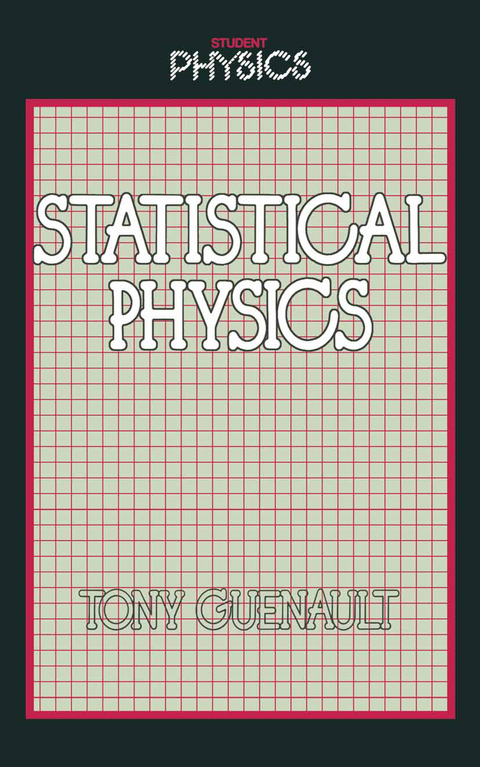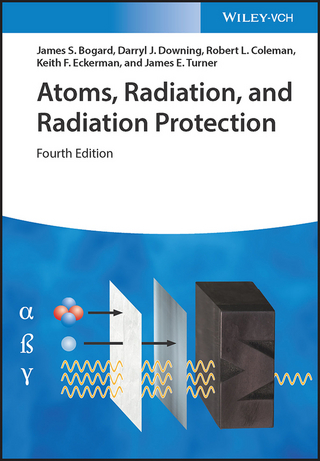
Statistical Physics
Routledge (Verlag)
978-0-415-00259-2 (ISBN)
Statistical physics is not a difficult subject, and I trust that this will not be found a difficult book. It contains much that a number of generations of Lancaster students have studied with me, as part of their physics honours degree work. The lecture course was of twenty hours duration, and I have added comparatively little to the lecture syllabus. A pre requisite is that the reader should have a working knowledge of basic thermal physics (i.e. the laws of thermodynamics and their application to simple substances). The book Thermal Physics by Colin Finn in this series forms an ideal introduc tion. Statistical physics has a thousand and one different ways of approaching the same basic results. I have chosen a rather down-to-earth and unsophisticated approach, without I hope totally obscuring the considerable interest of the fun damentals. This enables applications to be introduced at an early stage in the book. As a low-temperature physicist, I have always found a particular interest in statistical physics, and especially in how the absolute zero is approached. I should not, therefore, apologize for the low-temperature bias in the topics which I have selected from the many possibilities.
1 Basic ideas.- 1.1 The macrostate.- 1.2 Microstates.- 1.3 The averaging postulate.- 1.4 Distributions.- 1.5 The statistical method in outline.- 1.6 A model example.- 1.7 Statistical entropy and microstates.- 2 Distinguishable particles.- 2.1 The thermal equilibrium distribution.- 2.2 What are ? and ??.- 2.3 A statistical definition of temperature.- 2.4 The Boltzmann distribution and the partition function.- 2.5 Calculation of thermodynamic functions.- 3 Two examples.- 3.1 A spin(math) solid.- 3.2 Localized harmonic oscillators.- 4 Gases: The density of states.- 4.1 Fitting waves into boxes.- 4.2 Other information for statistical physics.- 4.3 An example — helium gas.- 5 Gases: The distributions.- 5.1 Distribution in groups.- 5.2 Identical particles-fermions and bosons.- 5.3 Counting microstates for gases.- 5.4 The three distributions.- 6 Maxwell-Boltzmann gases.- 6.1 The validity of the Maxwell-Boltzmann limit.- 6.2 The Maxwell-Boltzmann distribution of speeds.- 6.3 The connection tothermodynamics.- 7 Diatomic gases.- 7.1 Energy contributions in diatomic gases.- 7.2 Heat capacity of a diatomic gas.- 7.3 The heat capacity of hydrogen.- 8 Fermi-Dirac gases.- 8.1 Properties of an ideal Fermi-Dirac gas.- 8.2 Application to metals.- 8.3 Application to helium-3.- 9 Bose-Einstein Gases.- 9.1 Properties of an ideal Bose-Einstein gas.- 9.2 Application to helium-4.- 9.3 Phoney bosons.- 10 Entropy in other situations.- 10.1 Entropy and disorder.- 10.2 An assembly at fixed temperature.- 10.3 Vacancies in solids.- 11 Phase transitions.- 11.1 Types of phase transition.- 11.2 Ferromagnetism of a spin-½ solid.- 11.3 Real ferromagnetic materials.- 11.4 Order-disorder transformations in alloys.- 12 Two new ideas.- 12.1 Statics or dynamics?.- 12.2 Ensembles-a larger view.- Appendix 1 Some elementary counting problems.- Appendix 2 Some problems with large numbers.- Appendix 3 Some useful integrals.- Appendix 4 Some useful constants.- Appendix 5 Questions.- Appendix 6 Answers to questions.
| Erscheint lt. Verlag | 1.7.2019 |
|---|---|
| Reihe/Serie | Student Physics Series |
| Zusatzinfo | 2 Illustrations, black and white; X, 186 p. 2 illus. |
| Verlagsort | London |
| Sprache | englisch |
| Maße | 127 x 203 mm |
| Themenwelt | Geisteswissenschaften |
| Naturwissenschaften ► Physik / Astronomie ► Angewandte Physik | |
| Sozialwissenschaften | |
| ISBN-10 | 0-415-00259-1 / 0415002591 |
| ISBN-13 | 978-0-415-00259-2 / 9780415002592 |
| Zustand | Neuware |
| Haben Sie eine Frage zum Produkt? |
aus dem Bereich


